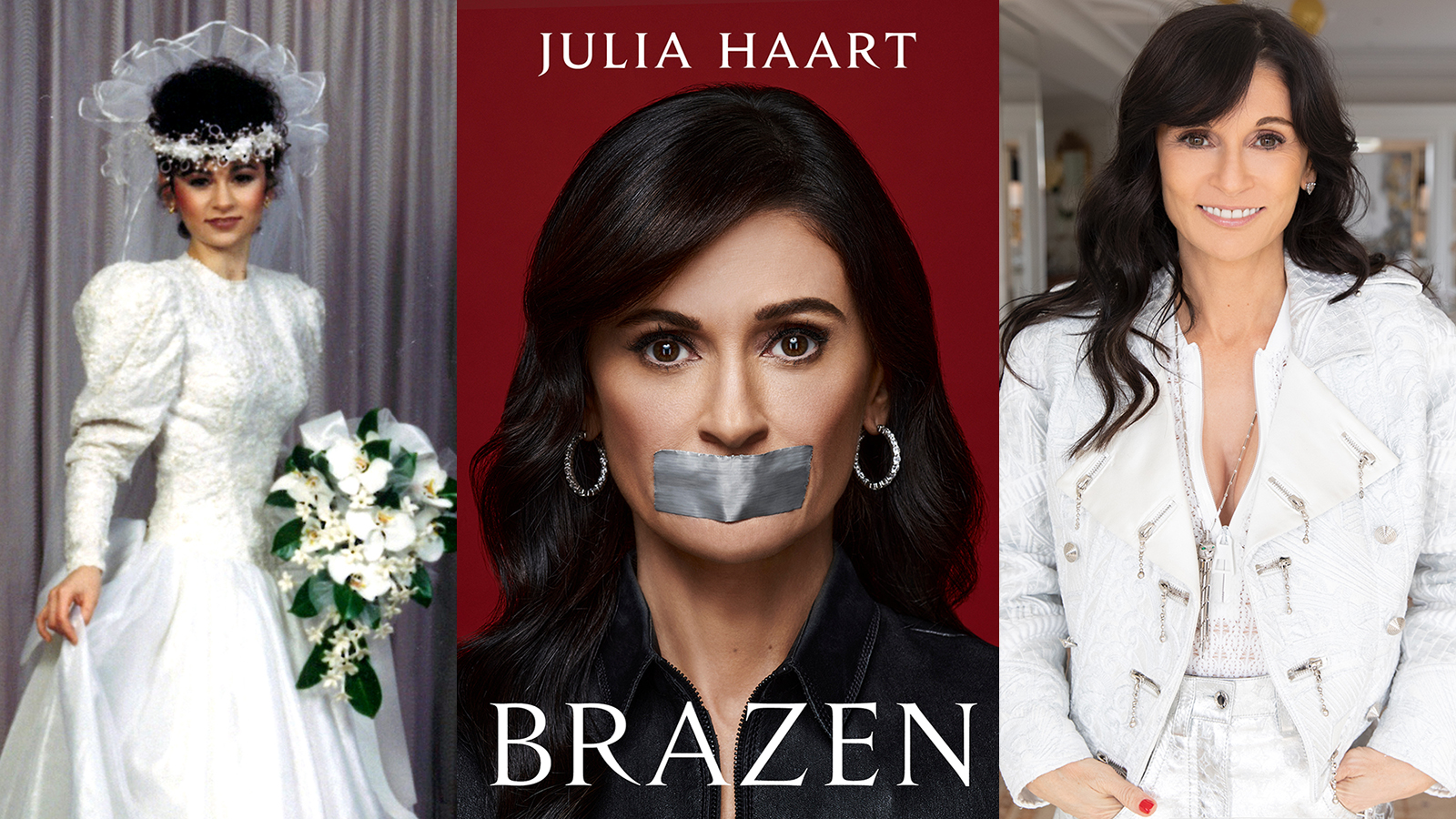
(RNS) — There’s an entire genre of storytelling about leaving insular religious communities. Only a few years ago, Tara Westover’s knockout bestseller, “Educated,” told of her escape from her fundamentalist Mormon family in rural Idaho.
The Jewish world has also seen a spate of stories about leaving various strands of the Orthodox religious world behind. In 2012, there was Deborah Feldman’s memoir, “Unorthodox: The Scandalous Rejection of My Hasidic Roots,” that later became a Netflix miniseries. In 2017, Tova Mirvis published “The Book of Separation,” in which she wrote about abandoning her marriage and her Modern Orthodox faith. Those are just a few.
Julia Haart’s new memoir, “Brazen,” is the latest and perhaps the splashiest. Haart’s rejection of her Haredi Jewish enclave and her meteoric rise to the elite world of fashion was partly captured in the Netflix reality TV show, “My Unorthodox Life.”
In her new book, she gives a painstaking account of the strictures imposed on women in her religious world: They are forbidden from wearing pants or short sleeves and, once married, are required to cover their hair. They are prohibited from studying certain Jewish texts, forbidden from singing solo in front of men or dancing in their presence, lest they distract the men from Torah values. The list goes on.
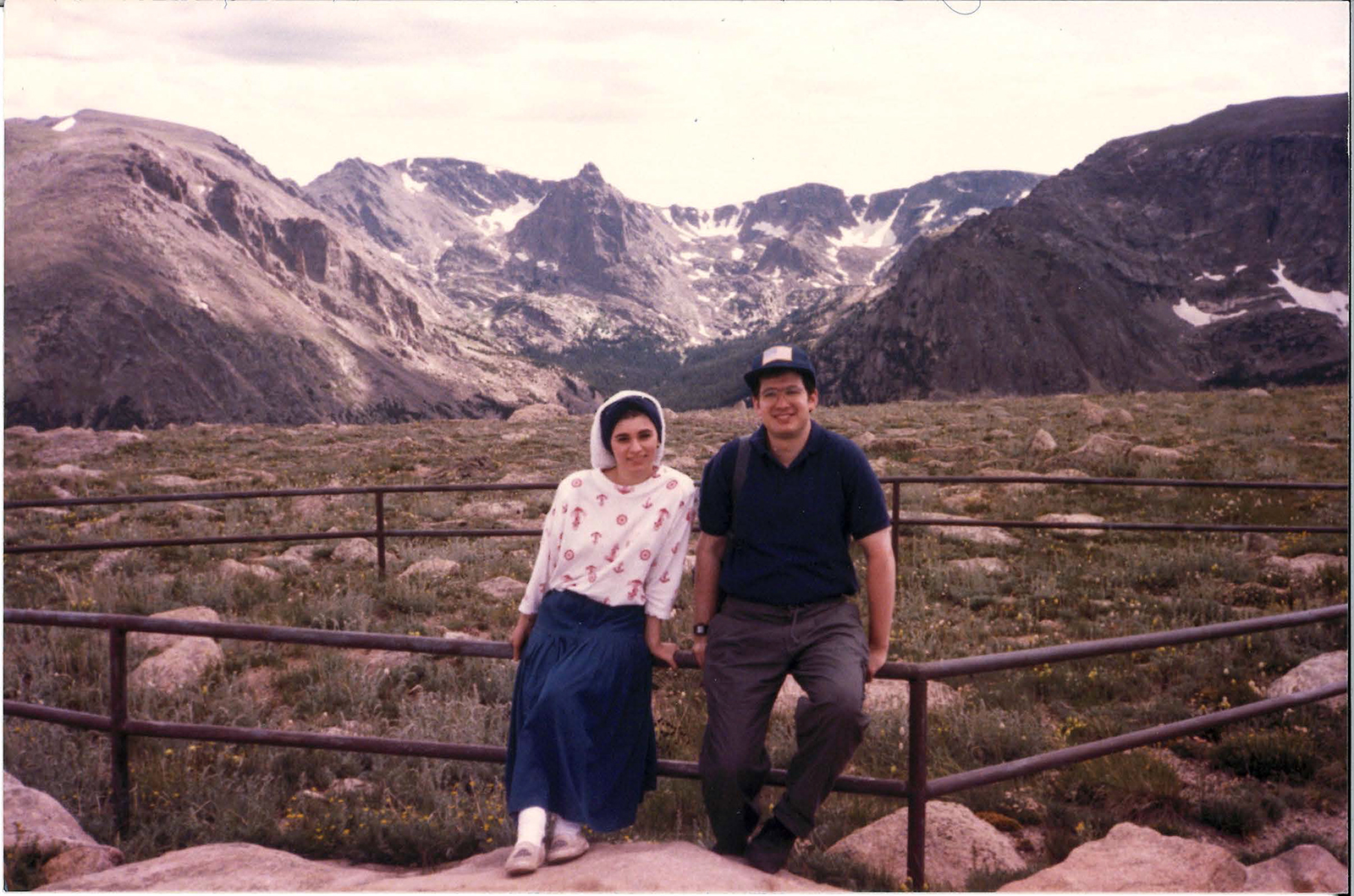
Julia Haart and Yosef on vacation in the Colorado Rockies during their first year of marriage (Julia was 19), from “My Unorthodox Life.” Photo courtesy Julia Haart
Haart writes of her arranged marriage to a man she barely knew and her growing frustration with her confining life in which her only professional option was teaching other girls, and her main purpose in life was to be a “babymaking machine.”
The birth of her third child, Miriam, who challenged her parents on why she couldn’t play soccer or sing in public, finally solidified Haart’s will to flee. She gradually left her community in Monsey, New York, beginning in 2012, started a women’s shoe brand and eventually became creative director of the lingerie brand La Perla. Her journey includes plenty of explicit sexual escapades and glamorous, high-rolling adventures.

“Brazen” by Julia Haart. Courtesy image
“Brazen” ends there, but as viewers of the Netflix reality TV show know, she eventually married Swiss entrepreneur Silvio Scaglia and became co-owner with him of Elite World Group. The two are now embroiled in a nasty divorce after he fired her from EWG.
RNS spoke to Haart, born in Russia as Yulia Leibov, about her book, her lifelong feelings of being an outsider and her plans for the future.
You weren’t born into this community but came into it as a girl. Did that help you leave it, too?
I think it absolutely helped. Even though I was very young and it was something I was supposed to feel ashamed about, I did experience modern living to some degree. Forty years later when I got back into (the modern world), there’s still that feeling, ‘Yes, it’s Mars. Yes, it’s a world I know nothing about, but I’ve lived in it once.’
You were a very accomplished teacher. Did you eventually feel conflicted about the kinds of advice you gave to high school girls about their future roles as wives and mothers?
When I was teaching I believed everything, hook, line and sinker. I didn’t think the laws were wrong. I didn’t think that a woman having to be subservient to her husband was wrong. I thought I was wrong for not being OK with that. Even though I became more and more miserable, I thought that made me a bad human being that God can’t love. It wasn’t until Miriam was a child that I stopped teaching and realized it wasn’t me; it was the system. From that point on, I never taught. Even when I left 13 years later, my original plan was to stay religious. I wanted to be a Modern Orthodox Jew. It didn’t occur to me that I would not be fundamentalist anymore. Even as I left, I was still fully religious.
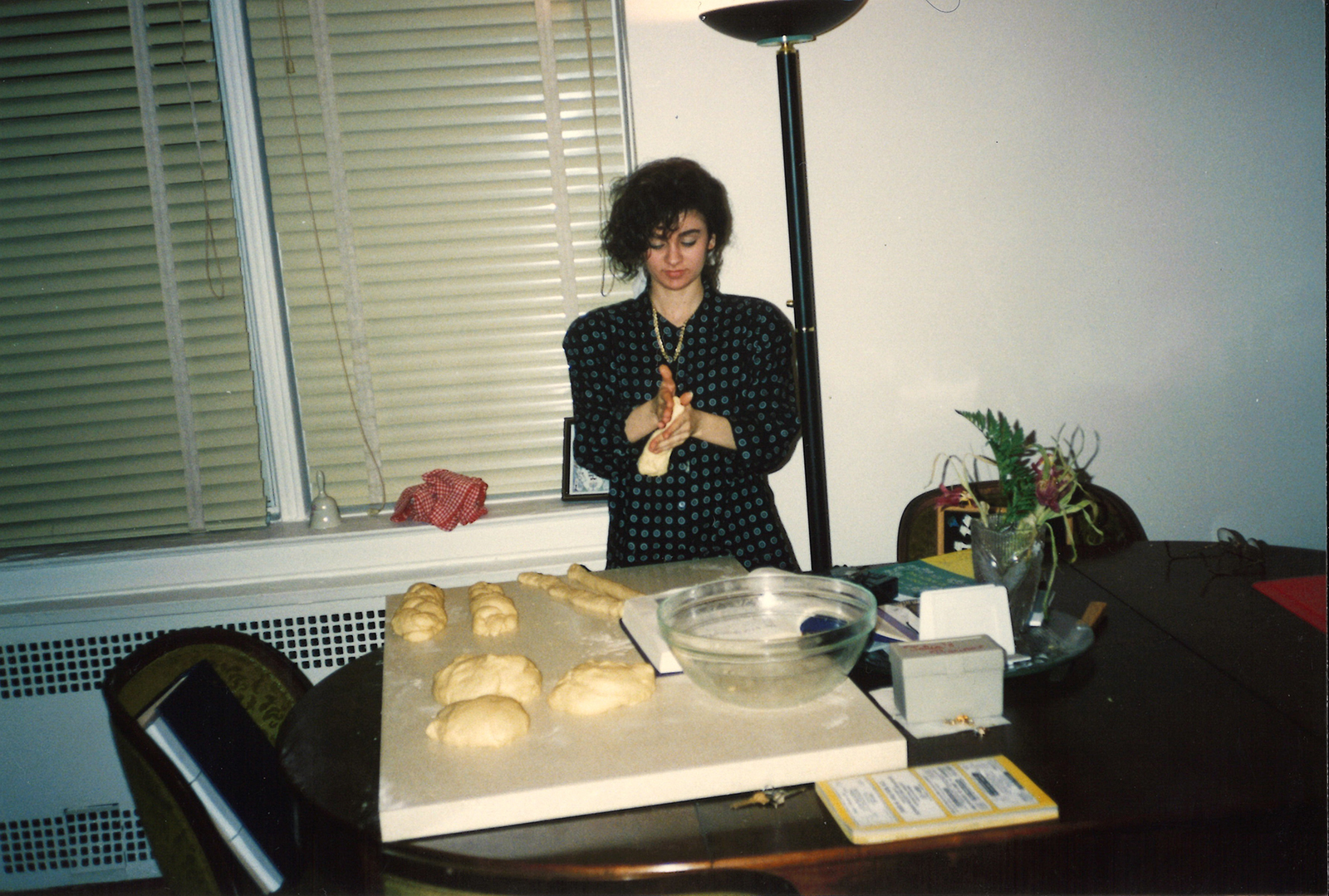
Julia Haart making Challah for Shabbat during her first year of marriage, in her apartment in Brooklyn, New York. Photo courtesy Julia Haart
So what led you to finally leave it all behind?
Once I was out I started reading different kinds of literature and meeting people. And I realized it was all the same. The same things that tormented me in my world had nothing to do with Judaism. They’re not authentic to Judaism. The same rules exist in fundamentalist Islam, in fundamentalist Christianity, in fundamentalist Mormonism. When you get to an extreme version of any religion the rules are the same. Women are supposed to be obedient and subservient to their husbands, they’re supposed to cover themselves up and be modest. The people who first befriended me when I came out were women from communities like mine. We all spoke the same language. The more I saw the world around me, the more I realized that what I’d been taught was a lie. That’s how I became irreligious.
But you write that you still believe in God.
Oh yes, I honestly today feel more spiritually connected to God than I ever have in my life. The God of my old world was a very angry God who hated me because I was not quiet. I was not demure. I was not shy. I spoke back. I asked questions. I taught myself Aramaic so that I could learn Gemara (a component of the Talmud). I did all those things that according to my world God hated. It’s only after I left that I felt God’s love. The rest of my life has been a string of miracles. I felt God’s hand on my shoulder every step of the way.
So how do you envision God nowadays?
First of all, it’s a she. The God I believe in is a God that gave humanity certain moral codes that have withstood the test of time: kindness, charity, gratitude, love, community. Those are the things I think have the innate truth of what Judaism is.
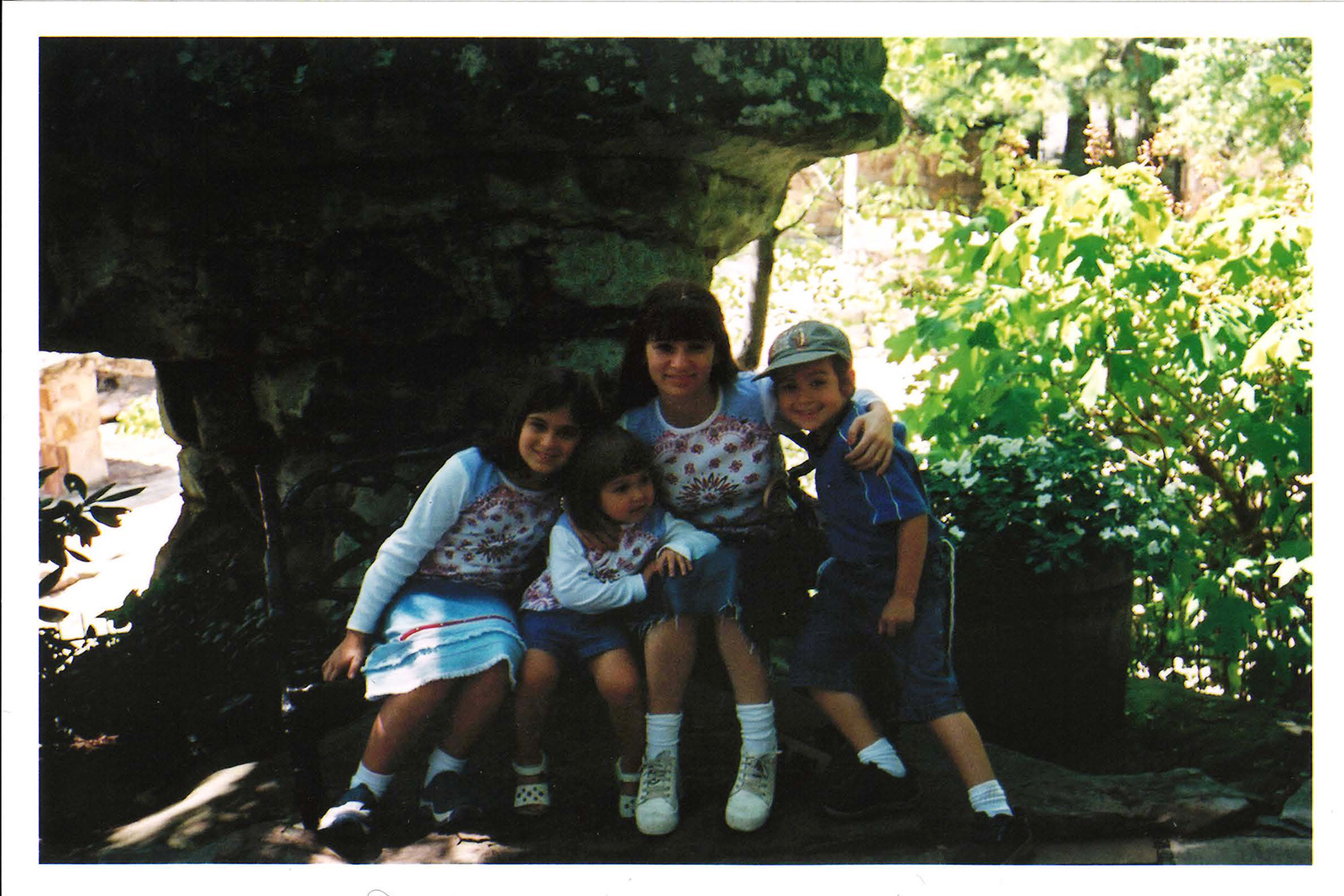
Julia Haart with her children in Atlanta in 2002. Photo courtesy Julia Haart
You write that you’ve always felt like an outsider. You use a Yiddish phrase, “Nisht ahin; Nish aher.” Neither here nor there. Do you still feel like an outsider in the secular world, too?
I’ll always feel that way. I’m weird. Look at my past. I’m always the strange one. I didn’t go to prom. I didn’t have my first love as a teenager. I didn’t do anything normal people do. I’ve been out with five guys in my life. It’s miniscule. Two years ago, I was invited by Kering, the group that owns Gucci and Bottega, to see a screening of ‘Thelma and Louise’ with Susan Sarandon and Gina Davis. Everyone else was chattering and talking because they’d seen it before. I was busy shushing everybody because I’d never seen it before. Things that people experienced from 11 to 17, I experienced from 43 to 51. I’m always the odd person out.
In one interview you said you were interested in helping women escaping abuse gain financial independence. Is that something you want to devote your life to?
Absolutely. I’ve met with a bunch of people. I’m just waiting to get my money back. The plan is already in the works. I’m a very determined person. Once I decide to do something, I’m going to do it. Now, of course, I’m embroiled in some other stuff, so I have to wait. But in the meanwhile, I’m organizing so when it’s time I can hit go immediately.
Are you planning on continuing to work in the fashion world?
I’ve got 17 things that I’m doing simultaneously. I have my shapewear brand that will be coming to every multi-brand store this Christmas. I created the first non-shapewear looking shapewear. It’s the most flattering and beautiful shapewear ever created. Every store has purchased it. We’re really excited about it. I’ve got a couple of other things happening. But I can’t announce it yet.
Now that you’ve lived in the secular world, are there parts of it you don’t like or are critical of?
How much time do we have? I think women are still treated badly. There’s still a double standard. Women are still taught to be polite and obedient. When my daughter won her first hackathon at 16 and went up to get her award, the professor asked which guy helped her. I see a tremendous amount of inequity between men and women. I see a total double standard. When a man travels to work he’s a good provider. When a woman travels to work she’s a bad mother. The double standard is outrageous. We’ve got a long way to go. But I’m alive. I have a voice. I create. I work. I can show people what’s inside my heart. The greatest freedom of all is to be able to work. What I missed wasn’t partying or clubs, it was showing what was inside of me. Working. It’s everything. It keeps me alive. I love this world. It’s not perfect. But it’s a lot better than the world I came from.
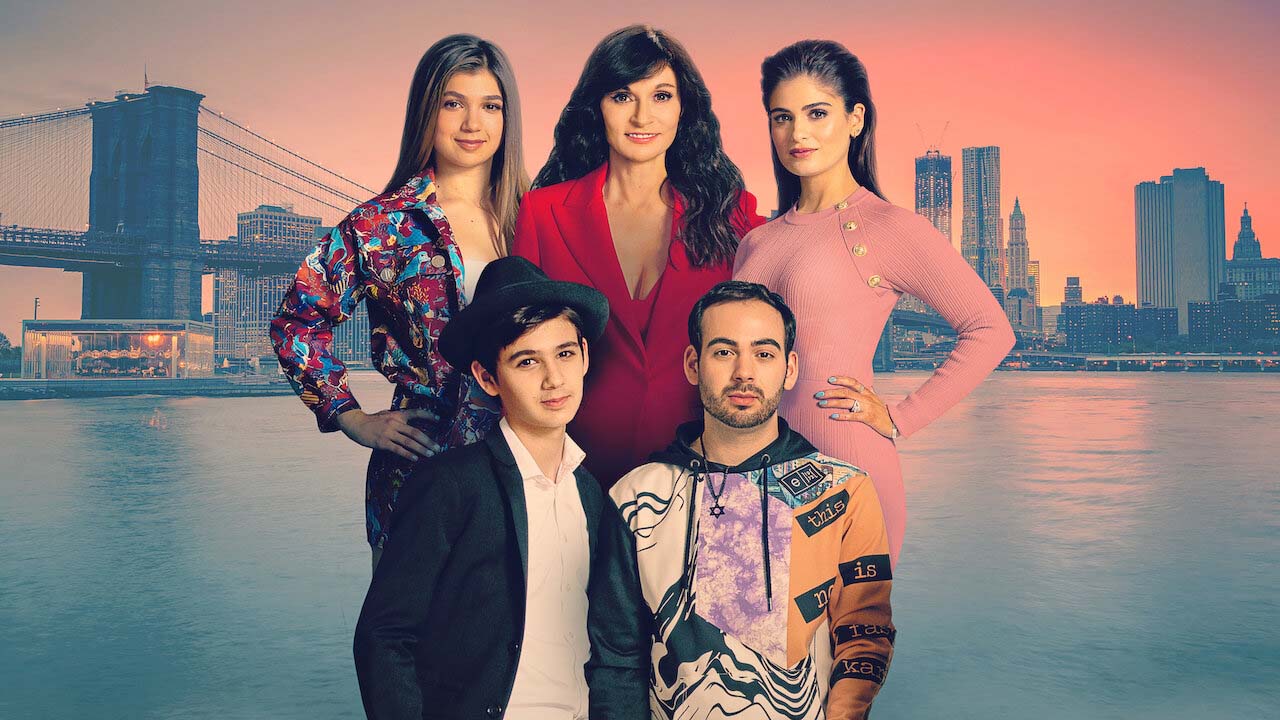
“My Unorthodox Life” on Netflix follows the family of Julia Haart, center. Image courtesy of Netflix
The Netflix series was criticized for distorting Orthodox Judaism. What’s the response been to your book?
When the show came out, it was a mixed bag. There were people who said, ‘She’s lying. She’s exaggerating. She’s making things up.’ That was extremely painful. But it taught me a lesson. So when the book came out, Random House allowed me to have a link called “sources.” I have proof and sources and backup for every word I say. So you can’t call me a liar. Since the book came out there has not been any of this, ‘She’s made it up.’ It’s all there in black and white. It’s all been really positive. People are feeling more comfortable supporting me openly. Women write me letters and send me DMs on my Instagram on how their lives have been changed since they read the book — how they left their bad marriage, walked out of their community, started a company, went back to school, things they’ve dreamed about but haven’t realized. I’m very grateful for those people. It makes everything else worth it.
RELATED: How Orthodox Jews became a streaming-TV hit
